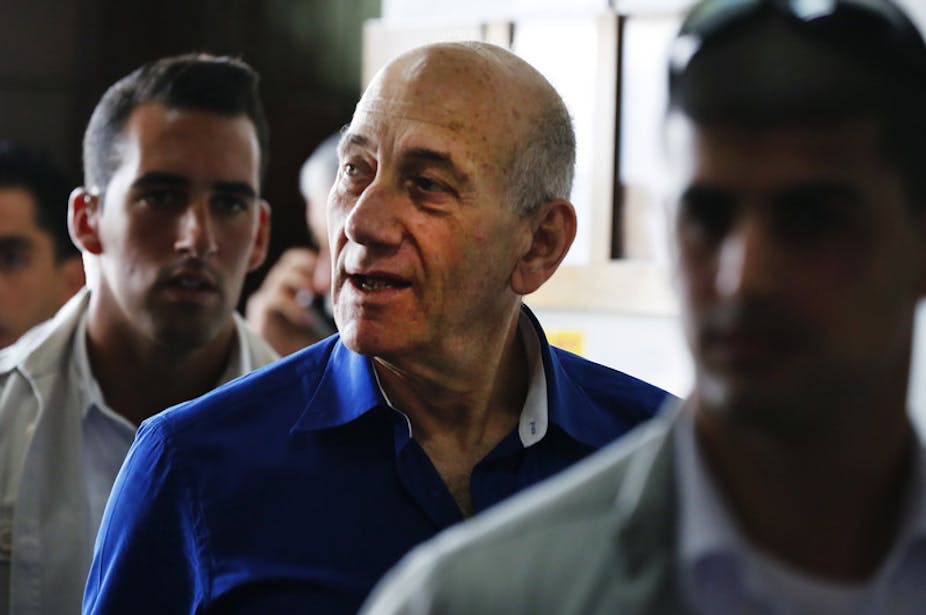“A public servant who accepts bribes is akin to a traitor,” Judge David Rozen read as he sentenced Ehud Olmert, Israel’s ex-prime minister, to six years in prison for corruption. But in real democracies, we are all traitors; we all prefer to focus on our particular narrow interests at the expense of the common good.
On an abstract level, political corruption and representative democracy are supposed to be contradictions in terms. But as has been proven time and again, democratic liberalism is often perfectly tolerant of greedy and selfish politicians. Or, rather, it’s not that liberalism likes greed and selfishness as much as it hates cruelty. And sometimes governance must be cruel in order to fully curb corruption.
More often than not, corruption is the crime of ordinary politicians, and sometimes people we should respect greatly for other reasons. At the very least, it is certainly not the sole province of the cruel and evil.
Accordingly, there is a big gap between the everyday reality of corruption and the hyperbolic demonising of the corrupters and the corrupted. Lawrence Lessig has been trying to explain this for the last five years, talking about corruption by and of good souls.
No traitor
Olmert is not a traitor, nor an evil person. Many people remember him as a good prime minister; those who know him describe a warm and a sensitive man. We can believe his lawyer when he says that Olmert thinks that he himself is not guilty. This is one of the ironies of corruption – it is often the result, among other things, of the corruption of judgement, of the fading of ethical sensitivity and, in the end, of fear and caution.
And if Olmert succumbed to the temptation of power, Judge Rozen succumbed to the temptation to frame corruption in monstrous terms.
But that’s not the most important thing now. To paraphrase Mao Tse-Tung, an effective anti-corruption trial, like a revolution, is not a dinner party. It cannot be so refined, so leisurely and gentle. When it does – as the case of Israeli foreign minister Avigdor Liberman indicates – it is not effective.
Whatever the complex reality of public impropriety, if anti-corruption efforts are not severe, tough and well-founded, corrupt politicians will simply not be brought to account. So, like a revolution, an effective anti-corruption combat is an act of force – the force of the state, of the law. The question is whether the current political elite will succumb to yet another temptation: to reject the severe sentence.
Before they do, they might do well to consider that Israelis have paid the price of Olmert’s leisurely dinner party for too many years – and that it rumbled along without most of them being aware of its existence, much less invited.

